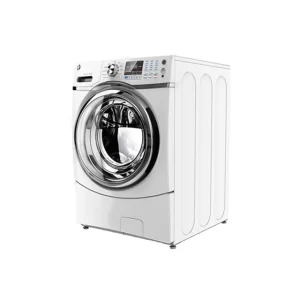Impeller vs. Agitator Washer: Which is Best for You?
Introduction
In 2024 when it comes to selecting a washing machine, one of the key decisions is whether to opt for an impeller or an agitator. Both technologies offer different approaches to cleaning and have their own advantages and limitations. In this guide, we will provide a detailed comparison of impeller and agitator washers, exploring their functioning, cleaning efficiency, fabric care, water usage, noise levels, and energy consumption to help you determine which option is best for you.
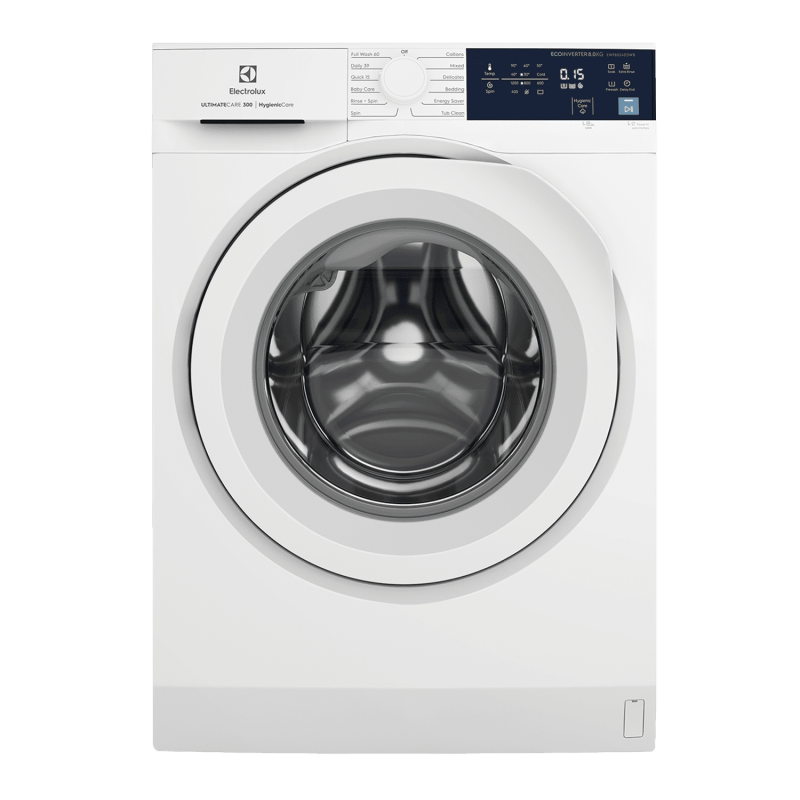
Agitator washer vs impeller: Which is Best for You?
Understanding Impeller Washers
Functioning of Impeller Washers
Impeller washers utilize a low-profile disc-like component located at the bottom of the drum. The impeller consists of rotating blades that create a turbulent water flow within the drum. This forceful water flow propels clothes against the drum walls, allowing for efficient cleaning.
Cleaning Efficiency of Impeller Washers
Impeller washers are known for their efficient cleaning performance. The forceful water flow created by the impeller enables thorough distribution of detergent and ensures even coverage across the clothes. The absence of a central agitator column also allows impeller washers to accommodate larger loads and items with irregular shapes.
Fabric Care in Impeller Washers
Impeller washers are considered gentler on fabrics compared to agitator washers. The lack of a central agitator column eliminates the risk of clothes getting tangled or snagged during the wash cycle. This attribute makes impeller washers suitable for delicate fabrics or garments that require extra care during cleaning.
Water Usage in Impeller Washers
Impeller washers typically use less water compared to agitator washers. The forceful water flow created by the impeller allows for more efficient water circulation, resulting in reduced water consumption. This makes impeller washers a more environmentally-friendly option and may lead to cost savings over time.
Noise Levels of Impeller Washers
Impeller washers are generally quieter during operation compared to agitator washers. The absence of a central agitator column eliminates the thumping or banging noise often associated with agitator-driven washers. The smooth and consistent water flow created by impellers results in a quieter washing experience.
Energy Consumption in Impeller Washers
Impeller washers are typically more energy-efficient compared to agitator washers. The absence of a central agitator column reduces friction and drag, requiring less power to operate. Additionally, impellers allow for higher water levels and improved water circulation, resulting in shorter cycle times and reduced energy consumption.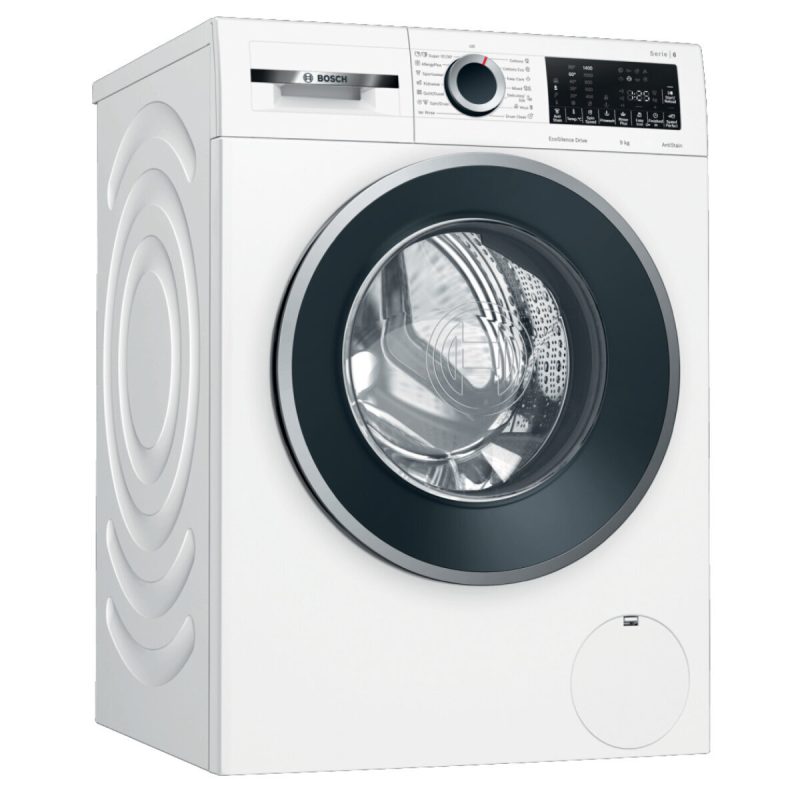
Understanding Agitator Washers – washing machine
Functioning of Agitator Washers
Agitator washers feature a central column with fins or paddles that move in a back-and-forth or up-and-down motion. This mechanical agitation creates friction between clothes, facilitating the removal of dirt and stains.
Cleaning Efficiency of Agitator Washers
Agitator washers are known for their robust cleaning performance, particularly when dealing with heavily soiled or stained items. The vigorous motion of the agitator ensures thorough agitation and maximizes contact between the clothes, detergent, and water. This makes agitator washers well-suited for tackling tough stains and heavy-duty cleaning tasks.
Fabric Care in Agitator Washers
Agitator washers can be more aggressive on fabrics compared to impeller washers. The vigorous motion of the agitator can cause clothes to rub against each other, potentially leading to tangling, stretching, or wear and tear. Agitator washers may not be the best choice for delicate fabrics or garments that require gentle handling.
Water Usage in Agitator Washers
Agitator washers generally use more water compared to impeller washers. The vigorous motion of the agitator requires a higher water level to ensure optimal cleaning performance. This can result in increased water consumption, which may impact both the environment and utility costs.
Noise Levels of Agitator Washers
Agitator washers tend to produce more noise during operation compared to impeller washers. The back-and-forth or up-and-down motion of the agitator can generate noticeable thumping or banging sounds. The noise level can vary depending on the specific washer model and its overall design and construction.
Energy Consumption in Agitator Washers
Agitator washers typically consume more energy compared to impeller washers. The robust mechanical agitation of the agitator requires more power to operate, resulting in longer cycle times and increased energy consumption. However, modern agitator models have seen improvements in energy efficiency, narrowing the gap between the two technologies.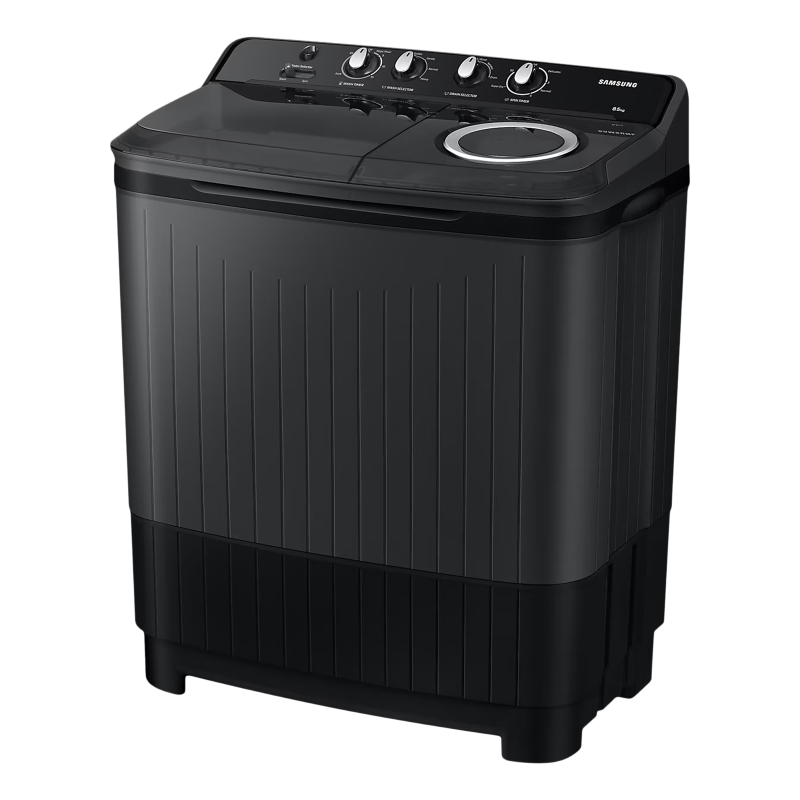
Choosing Between Impeller and Agitator Washers
Load Type and Cleaning Needs
Consider the type of loads you frequently wash and the level of cleaning power you require. If you often deal with larger loads, bulky items, or heavily soiled laundry, an impeller washer may be the better choice. For households with delicate fabrics or lighter loads that need extra care, an agitator washer may provide the necessary cleaning power.
Fabric Care Requirements
Take into account the level of care your fabrics or garments require. If you have a lot of delicate fabrics or items that need gentle handling during cleaning, an impeller washer may be more suitable. On the other hand, if you prioritize powerful cleaning performance and have fewer delicate items, an agitator washer may be the preferred option.
Water Usage and Environmental Impact
If water conservation is a priority, an impeller washer may be the more favorable option. Impeller washers use less water due to their efficient water circulation system. This can help reduce environmental impact and potentially lead to cost savings over time. However, it is worth noting that modern agitator models have made strides in water efficiency, narrowing the gap between the two technologies.
Noise Considerations
If noise level is a significant factor for you, particularly if the washer is located close to living areas or bedrooms, an impeller washer may be the better choice. The absence of a central agitator column significantly reduces noise levels, providing a quieter washing experience.
Energy Efficiency
If energy efficiency is a priority, an impeller washer may be the more favorable option. The absence of a central agitator column reduces friction and energy consumption. However, it is important to note that modern agitator models have made improvements in energy efficiency, narrowing the gap between the two technologies.
Impeller Washers – washing machine
Pros:
- Gentler on Clothes: Impeller washers use a low-profile rotating disc at the bottom of the drum to tumble and rub clothes against each other for cleaning. This design is gentler on fabrics, making it ideal for delicate items and clothing with embellishments.
- Increased Capacity: Without a central agitator taking up space, impeller washers often have larger drum capacities, allowing you to wash more clothes in a single load. This can save time and energy in the long run.
- Energy Efficiency: Modern impeller washers are generally more energy-efficient than traditional agitator models. They use less water and can have better spin speeds, extracting more water from clothes and reducing drying time.
- Better Cleaning Performance for Some Fabrics: The tumbling action of impellers can provide a more thorough cleaning for heavily soiled garments, as it encourages the clothes to rub against each other and release dirt more effectively.
Cons:
- Longer Cycle Times: In some cases, impeller washers may take longer to complete a cycle compared to agitator models, especially for heavily soiled loads.
- Less Effective with Bulky Items: The lack of a central agitator means that large, bulky items may not get the same level of mechanical agitation, potentially requiring extra attention or separate cycles.
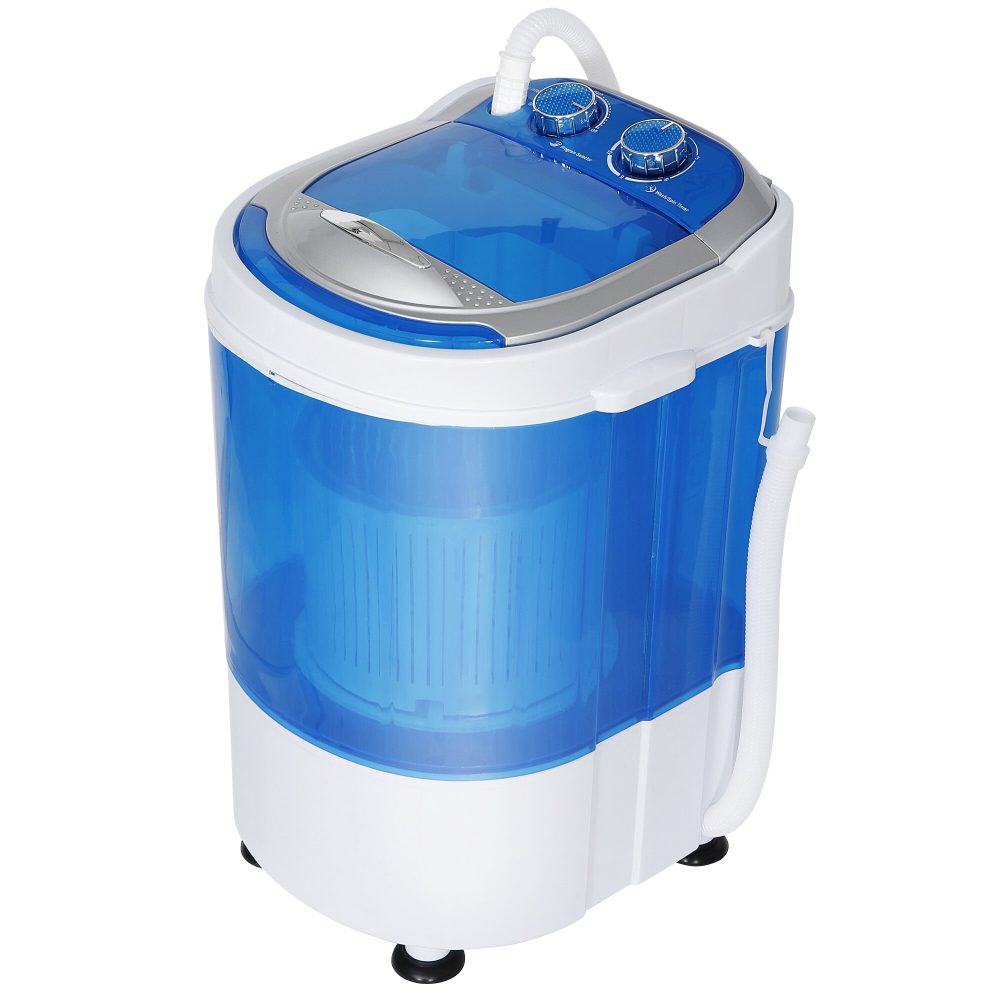
Agitator Washers – washing machine
Pros:
- Effective Cleaning: Traditional agitator washers have a central post with paddles that rotate, providing a strong mechanical action that can effectively remove tough stains and soil from clothes, especially on shorter cycles.
- Faster Wash Cycles: Agitator models often have shorter cycle times, making them a good choice for those who prioritize speed and efficiency in their laundry routine.
- Cost-Effective: Agitator washers can be less expensive upfront compared to high-efficiency impeller models, making them an attractive option for budget-conscious consumers.
Cons:
- Harsher on Clothes: The aggressive agitation can be rough on delicate fabrics and cause wear and tear over time, leading to more frequent replacement of clothing.
- Smaller Capacity: The presence of the agitator reduces the usable space within the drum, limiting the size of loads you can wash at once.
- Higher Water and Energy Consumption: Agitator washers typically use more water and energy than their impeller counterparts, which can translate into higher utility bills and a larger environmental footprint.
Which is Best for You – washing machine?
- If you frequently wash delicate fabrics, have a larger family, and prioritize energy efficiency, an impeller washer might be the better choice. Its gentle cleaning action and larger capacity can accommodate various washing needs without compromising on fabric care.
- On the other hand, if you prioritize powerful stain removal, faster cycle times, and are looking for a more budget-friendly option, an agitator washer might suit you better. It’s particularly beneficial for households dealing with heavily soiled clothes regularly and who want a more traditional, effective washing mechanism.
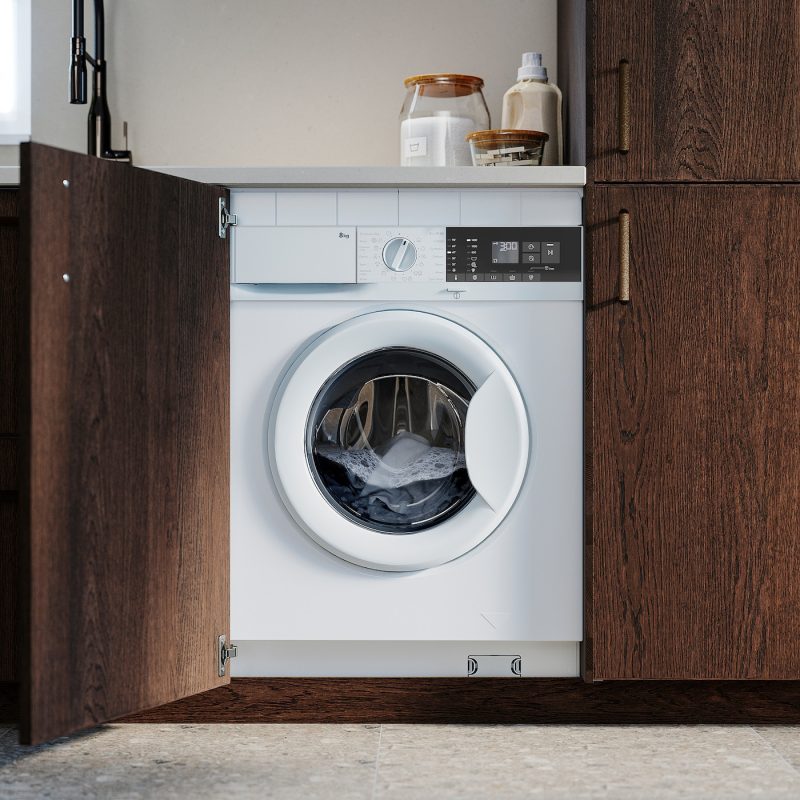
Conclusion – washing machine
Washing machine – Choosing between an impeller and an agitator washer depends on various factors, including cleaning efficiency, fabric care requirements, water usage, noise considerations, and energy efficiency. Impeller washers offer efficient cleaning, gentle fabric care, lower water usage, quieter operation, and greater energy efficiency. Agitator washers provide robust cleaning power, particularly for heavily soiled items, but may be more aggressive on fabrics, consume more water, produce more noise, and have higher energy consumption.
Assess your specific needs, considering the type of loads, fabric care requirements, water usage preferences, noise considerations, and energy efficiency goals. By weighing these factors, you can make an informed decision and select the washer technology that best aligns with your cleaning requirements and priorities.
